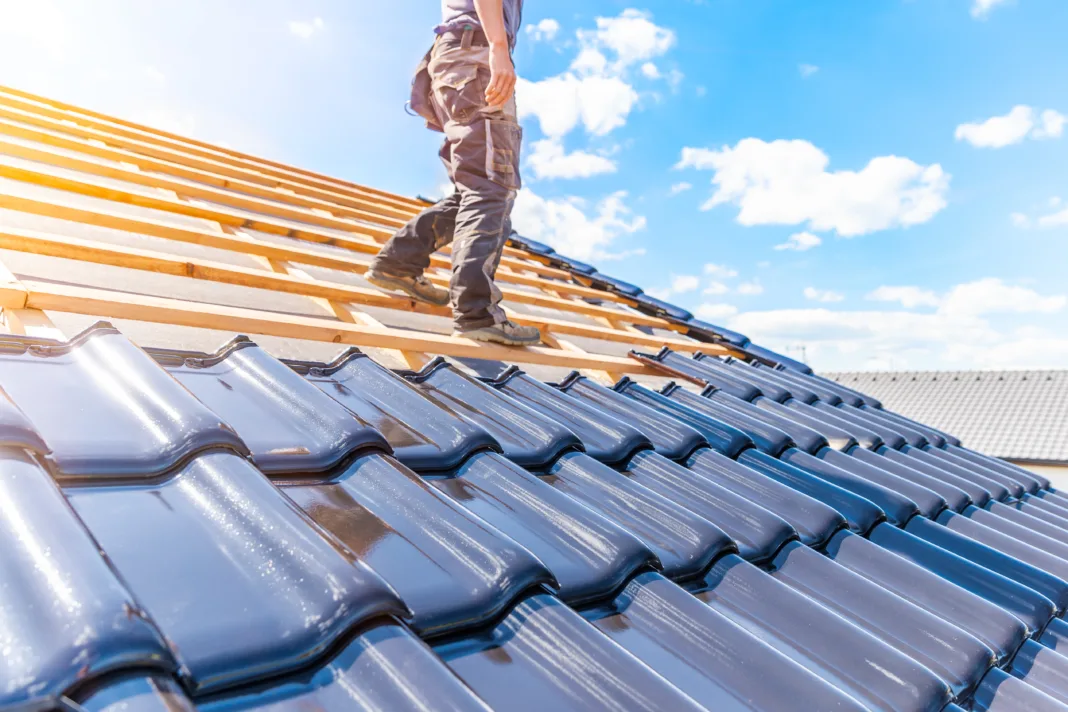The humble roof tile may seem like a static element of your home, but beneath its unassuming surface lies a world of diverse materials and captivating benefits.
Selecting the right roof tile material for your home isn’t just about aesthetics – it’s a strategic decision that impacts everything from longevity and maintenance to energy efficiency and curb appeal.
Hence, before you embark on your roofing journey, check out the following points covering the different types of roof tiles with their own characteristics and advantages. Read on and learn more here.
Clay Roof Tiles 101
For centuries, clay tiles have graced the rooftops of countless homes. This helped it earn a reputation for enduring beauty and unwavering resilience. Baked from natural earthenware, these handcrafted beauties boast exceptional weather resistance, impervious to rain, sun, and even hail.
Clay roof tiles’ thermal mass insulates your home, keeping you cozy in winter and cool in summer – a benefit that translates to reduced energy bills. Add to that a palette of rich, earthy tones and timeless elegance, and clay tiles become an investment in both aesthetics and performance.
However, clay roofing’s heavyweight nature demands sturdy roof structures and expert installation, while higher initial costs and potential cracking with extreme temperature fluctuations require careful consideration.
Concrete Roof Tiles 101
Emerging as a more affordable alternative to clay roof tiles, concrete tiles offer a chameleon-like ability to mimic the look of their more distinguished counterparts.
From the rustic allure of clay to the sophisticated charm of slate, concrete can be molded and colored to complement any architectural style. Their robust composition handles harsh weather conditions with aplomb, while their fire-resistant properties add an extra layer of safety.
Unlike clay roof tiles, concrete roof tiles are lighter on your wallet and your roof structure, making them a popular choice for new constructions and renovations alike. Nevertheless, their lower insulation value compared to clay might translate to slightly higher energy costs, and potential moss growth may require occasional maintenance.
Metal Roof Tiles 101
For those seeking a contemporary edge, metal roof tiles take center stage. Crafted from aluminum, steel, or copper, these sleek panels offer unmatched longevity, often exceeding the lifespan of your home itself. Their lightweight nature eases installation and reduces strain on your roof structure, while their reflective surface deflects heat, keeping your home cooler in warmer climates.
Metal roofing tiles boast incredible fire resistance and virtually zero maintenance needs, making them a low-maintenance option for the busy homeowner. But their initial cost can be higher than other materials, and the potential for noise in heavy rain or hail might deter some.

Slate Roof Tiles 101
For those seeking a touch of timeless luxury, slate roofs reign supreme. This natural stone, quarried from the earth, embodies unmatched elegance and durability. Its natural beauty, with its unique veining and textured surface, elevates any architectural style, lending a sense of history and prestige.
Slate is impervious to the elements, shrugging off snow, rain, and fire with stoic indifference. Its exceptional insulating properties contribute to energy efficiency, while its inherent low maintenance needs make it a truly long-term investment. Nonetheless, its hefty price tag and significant weight necessitate a robust roof structure and expert installation.
Composite Roof Tiles 101
Want the best of both metal tiles and stone tiles? If that’s what you’re looking for, you can check out composite tiles.
Composite roof tiles are a type of roof tile that consist of a combination of fiberglass, asphalt, and other synthetic materials. This mix of materials make composite roof tiles very durable that allows them to weather extreme outdoor conditions. Besides their durability, they’re easy to install and are light. Most new build homes utilize composite roofing because of the aforementioned features.
On the other side of the coin, composite roof tiles command a high upfront price. In addition, the materials used in making them are hard to recycle – making composite roof tiles a final resort for eco-conscious homeowners.
Woodshake Tiles 101
Woodshake roof tiles are a kind of roof tile that’s chiefly composed of wood materials. They provide high aesthetic value to homeowners who have rustic homes. However, woodshake roof tiles require regular maintenance. This is because the wood used on them can attract insects and; pests that feast and destroy wood.
Exploring Eco-Friendly Options For Your Home’s Roofing System
The future of roofing holds exciting possibilities for sustainable living. Delve into the world of:
- Solar roof tiles are innovative tiles that integrate solar panels seamlessly into your roof, generating clean energy for your home.
- Green roofs are living landscapes atop your roof provide insulation, improve air quality, and offer a haven for biodiversity.
- Vegetative roofs, similar to green roofs, incorporate a thinner layer of vegetation for a more lightweight option.
To Conclude
When selecting the right roof tile for your house, keep in mind the following aside from examining each roof tile material available as well as their perks and drawbacks. Consider your budget, climate, roof pitch, architectural style, and desired level of maintenance. If you have further concerns, don’t hesitate to reach out to a professional roof tile installer near you for appropriate guidance.





